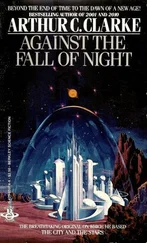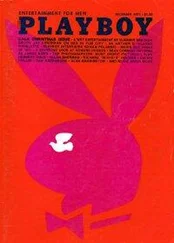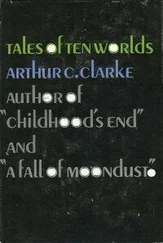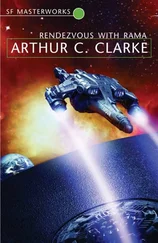Arthur Clarke - Trouble with the Natives
Здесь есть возможность читать онлайн «Arthur Clarke - Trouble with the Natives» весь текст электронной книги совершенно бесплатно (целиком полную версию без сокращений). В некоторых случаях можно слушать аудио, скачать через торрент в формате fb2 и присутствует краткое содержание. Год выпуска: 1951, Издательство: Stadium Publishing Corporation, Жанр: Фантастика и фэнтези, на английском языке. Описание произведения, (предисловие) а так же отзывы посетителей доступны на портале библиотеки ЛибКат.
- Название:Trouble with the Natives
- Автор:
- Издательство:Stadium Publishing Corporation
- Жанр:
- Год:1951
- ISBN:нет данных
- Рейтинг книги:5 / 5. Голосов: 1
-
Избранное:Добавить в избранное
- Отзывы:
-
Ваша оценка:
- 100
- 1
- 2
- 3
- 4
- 5
Trouble with the Natives: краткое содержание, описание и аннотация
Предлагаем к чтению аннотацию, описание, краткое содержание или предисловие (зависит от того, что написал сам автор книги «Trouble with the Natives»). Если вы не нашли необходимую информацию о книге — напишите в комментариях, мы постараемся отыскать её.
Trouble with the Natives — читать онлайн бесплатно полную книгу (весь текст) целиком
Ниже представлен текст книги, разбитый по страницам. Система сохранения места последней прочитанной страницы, позволяет с удобством читать онлайн бесплатно книгу «Trouble with the Natives», без необходимости каждый раз заново искать на чём Вы остановились. Поставьте закладку, и сможете в любой момент перейти на страницу, на которой закончили чтение.
Интервал:
Закладка:
Little Milton was a typical English village, nestling at the foot of the hills whose higher slopes now concealed so portentous a secret. There were very few people about on this summer morning, for the men were already at work and the women folk were still tidying up after the exhausting task of getting their lords and masters safely out of the way. Consequently Crysteel and Danstor had almost reached the centre of the village before their first encounter, which happened to be with the village postman, cycling back to the office after completing his rounds. He was in a very bad temper, having had to deliver a penny postcard to Dodgson’s farm, a couple of miles off his normal route. In addition, the weekly parcel of laundry which Gunner Evans sent home to his doting mother had been a lot heavier than usual, as well it might, since it contained four tins of bully beef pinched from the cookhouse.
“Excuse me,” said Danstor politely.
“Can’t stop,” said the postman, in no mood for casual conversation. “Got another round to do.” Then he was gone.
“This is really the limit!” protested Danstor. “Are they all going to be like this?”
“You’ve simply got to be patient,” said Crysteel. “Remember their customs are quite different from ours; it may take some time to gain their confidence. I’ve had this sort of trouble with primitive races before. Every anthropologist has to get used to it.”
“Hmm,” said Danstor. “I suggest that we call at some of their houses. Then they won’t be able to run away.”
“Very well,” agreed Crysteel doubtfully. “But avoid any thing that looks like a religious shrine, otherwise we may get into trouble.”
Old Widow Tomkins’ council-house could hardly have been mistaken, even by the most inexperienced of explorers, for such an object. The old lady was agreeably excited to see two gentlemen standing on her doorstep, and noticed nothing at all odd about their clothes. Visions of unexpected legacies, of newspaper reporters asking about her l00th birthday (she was really only 95, but had managed to keep it dark) flashed through her mind. She picked up the slate she kept hanging by the door and went gaily forth to greet her visitors.
“You’ll have to write it down,” she simpered, holding out the slate. “I’ve been deaf this last twenty years.”
Crysteel and Danstor looked at each other in dismay. This was a completely unexpected snag, for the only written characters they had ever seen were television programme announcements, and they had never fully deciphered those. But Danstor, who had an almost photographic memory, rose to the occasion. Holding the chalk very awkwardly, he wrote a sentence which, he had reason to believe, was in common use during such breakdowns in communication.
As her mysterious visitors walked sadly away, old Mrs Tomkins stared in hauled bewilderment at the marks on her slate. It was some time before she deciphered the characters—Danstor had made several mistakes—and even then she was little the wiser.
TRANSMISSIONS WILL BE RESUMED AS SOON AS POSSIBLE.
It was the best that Danstor could do; but the old lady never did get to the bottom of it.
They were little luckier at the next house they tried. The door was answered by a young lady whose vocabulary consisted largely of giggles, and who eventually broke down completely and slammed the door in their faces. As they listened to the muffled, hysterical laughter, Crysteel and Danstor began to suspect, with sinking hearts, that their disguise as normal human beings was not as effective as they had intended.
At Number 3, on the other hand, Mrs Smith was only too willing to talk—at 120 words to the minute in an accent as impenetrable as Sam Higginsbotham’s. Danstor made his apologies as soon as he could get a word in edgeways, and moved on.
“Doesn’t anyone talk as they do on the radio?” he lamented. “How do they understand their own programmes if they all speak like this?”
“I think we must have landed in the wrong place,” said Crysteel, even his optimism beginning to fail. It sagged still further when he had been mistaken, in swift succession, for a Gallup Poll investigator, the prospective Conservative candidate, a vacuum-cleaner salesman, and a dealer from the local black market.
At the sixth or seventh attempt they ran out of housewives. The door was opened by a gangling youth who clutched in one clammy paw an object which at once hypnotized the visitors. It was a magazine whose cover displayed a giant rocket climbing upward from a crater-studded planet which, whatever it might be, was obviously not the Earth. Across the background were the words: “Staggering Stories of Pseudo-Science. Price 25 cents.”
Crysteel looked at Danstor with a “Do you think what I think?” expression which the other returned. Here at last, surely, was someone who could understand them. His spirits mounting, Danstor addressed the youngster.
“I think you can help us,” he said politely. “We find it very difficult to make ourselves understood here. You see, we’ve just landed on this planet from space and we want to get in touch with your government.”
“Oh,” said Jimmy Williams, not yet fully returned to Earth from his vicarious adventures among the outer moons of Saturn. “Where’s your spaceship?”
“It’s up in the hills; we didn’t want to frighten anyone.”
“Is it a rocket?”
“Good gracious no. They’ve been obsolete for thousands of years.”
“Then how does it work? Does it use atomic power?”
“I suppose so,” said Danstor, who was pretty shaky on physics. “Is there any other kind of power?”
“This is getting us nowhere,” said Crysteel, impatient for once. “We’ve got to ask him questions. Try and find where there are some officials we can meet.”
Before Danstor could answer, a stentorian voice came from inside the house.
“Jimmy! Who’s there?”
“Two… men,” said Jimmy, a little doubtfully. “At least, they look like men. They’ve come from Mars. I always said that was going to happen.”
There was the sound of ponderous movements, and a lady of elephantine bulk and ferocious mien appeared from the gloom. She glared at the strangers, looked at the magazine Jimmy was carrying, and summed up the situation.
“You ought to be ashamed of yourselves!” she cried, rounding on Crysteel and Danstor. “It’s bad enough having a good-for-nothing son in the house who wastes all his time reading this rubbish, without grown men coming along putting more ideas into his head. Men from Mars, indeed! I suppose you’ve come in one of those flying saucers!”
“But I never mentioned Mars,” protested Danstor feebly.
Slam! From behind the door came the sound of violent altercation, the unmistakable noise of tearing paper, and a wail of anguish. And that was that.
“Well,” said Danstor at last. “What do we try next? And why did he say we came from Mars? That isn’t even the nearest planet, if I remember correctly.”
“I don’t know,” said Crysteel. “But I suppose it’s natural for them to assume that we come from some close planet. They’re going to have a shock when they find out the truth. Mars, indeed! That’s even worse than here, from the reports I’ve seen.” He was obviously beginning to lose some of his scientific detachment.
“Let’s leave the houses for a while,” said Danstor. “There must be some more people outside.”
This statement proved to be perfectly true, for they had not gone much further before they found themselves surrounded by small boys making incomprehensible but obviously rude remarks.
“Should we try and placate them with gifts?” said Danstor anxiously. “That usually works among more backward races.”
Читать дальшеИнтервал:
Закладка:
Похожие книги на «Trouble with the Natives»
Представляем Вашему вниманию похожие книги на «Trouble with the Natives» списком для выбора. Мы отобрали схожую по названию и смыслу литературу в надежде предоставить читателям больше вариантов отыскать новые, интересные, ещё непрочитанные произведения.
Обсуждение, отзывы о книге «Trouble with the Natives» и просто собственные мнения читателей. Оставьте ваши комментарии, напишите, что Вы думаете о произведении, его смысле или главных героях. Укажите что конкретно понравилось, а что нет, и почему Вы так считаете.












